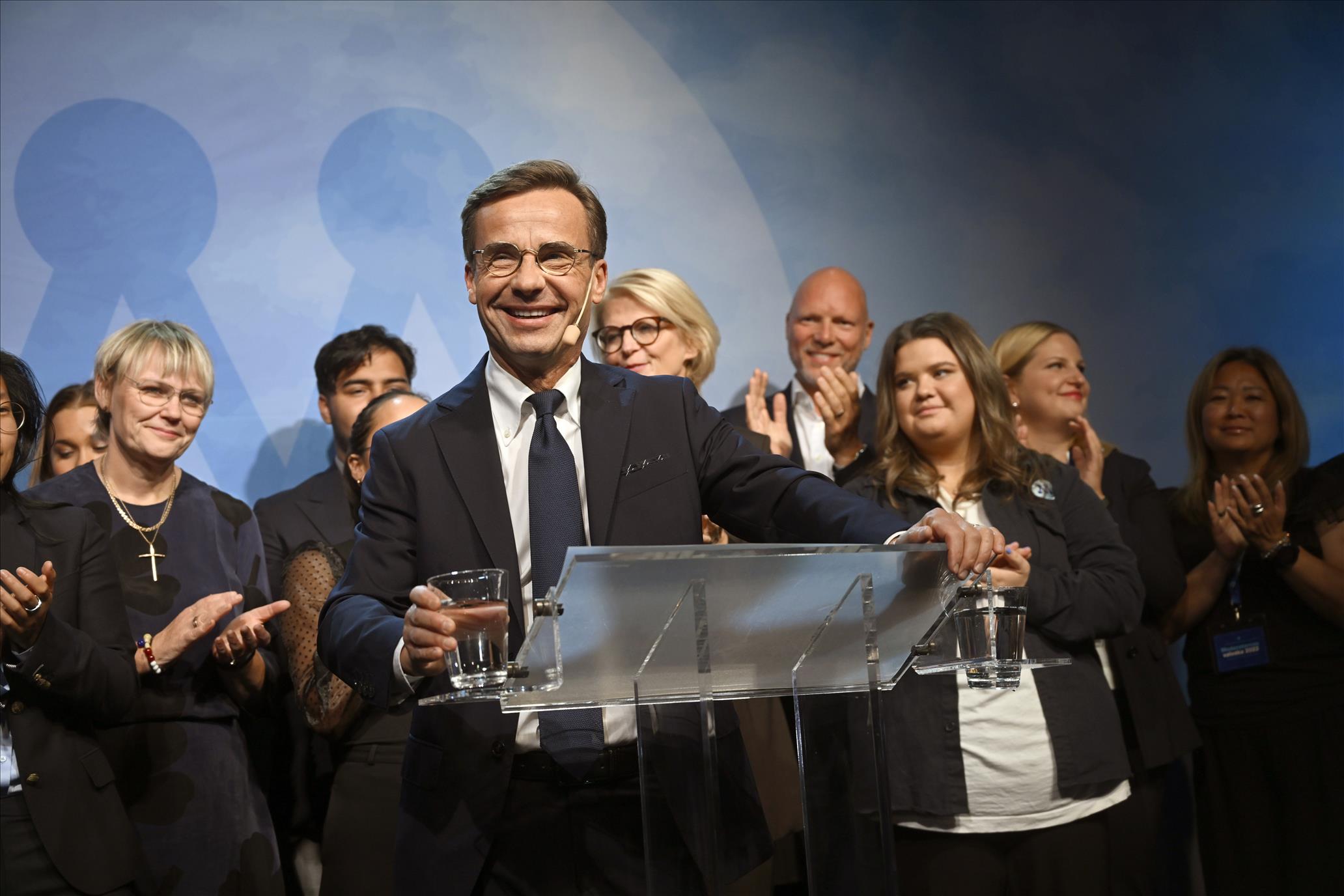
Swedish Election: What We Know So Far About The Influence The Nationalist Right Will Have In The New Government
With final election results announced, it is now clear that Sweden is to have a new government. Magdalena Andersson, the Social Democratic leader and prime minister, has resigned and Ulf Kristersson, party leader for the centre-right Conservatives (Moderaterna) has already begun informal negotiations over who will sit in his cabinet.
His party had a pre-electoral alliance with the Christian Democrats, Liberals and Sweden Democrats. Their declared ambition is to finalise the shape of their right-wing coalition government within ten days. This is when Kristersson will be officially confirmed as the new prime minister.
His task is not an enviable one, as internal divisions are already apparent. The anti-immigration Sweden Democrats, led by Jimmie Åkesson, took over 20% of the national vote to become the second largest party in the country – and the largest on the right. They can thereby make a strong claim to be a significant player in the government.
However, in order to form a parliamentary majority, Kristersson needs the support of the Liberals, and they've said they would not support a cabinet where the Sweden Democrats hold ministerial posts. The likely outcome will be a Kristersson government without a formal Sweden Democrats presence.
Jimmie Akesson, leader of the. Sweden Democrats. EPA/Christine Olsson
Instead, the anti-immigration party will exert their influence outside the government through a formal contract with the Conservatives. The contract will outline the policies that the Sweden Democrats want to see implemented in exchange for their parliamentary support.
Some of the policies were already negotiated before the elections, such as tougher positions on crime and immigration. We can expect to see citizenship removed from people who have been naturalised into Sweden but who subsequently commit a violent crime, and offers of financial incentives being made to encourage immigrants to return to their nations of origin.
Points of disputeThere are, however, areas where the Sweden Democrats and the other members of the conservative bloc do not agree and where common positions will be difficult to thrash out. The Conservatives, for example want to make far deeper cuts to welfare for the unemployed and those on sick leave than the Sweden Democrats are willing to support.
The two share the view that Sweden's international aid and development budget should be slashed but they will face opposition from the Liberals on this point. The Christian Democrats want to continue to provide financial support for religious schools but the Sweden Democrats are opposed.
And, crucially, climate initiatives are not a priority for the Sweden Democrats but are high on the agenda for all three of the other parties that will make up the new government.
Cooperation with the European Union could also prove a point of contention. The Sweden Democrats are Sweden's most critical voice against the EU, whereas the Liberals are the most pro-EU of all parties.
Sweden and its neighboursWhenever a far-right party makes electoral gains, the inevitable concern is that a nation will take a dramatic turn away from immigration. But these results feel more like an epilogue rather than the beginning of a new story.
The trend has been towards stricter migration policies for some time. Hence why the bloc was able to agree on at least some immigration policies prior to the election.
The success of the anti-immigration Sweden Democrats has been saluted by sister parties around the region. However in both Denmark and Finland, for example, such parties have lost political significance in recent years, despite early electoral success.
In France, too, the far-right presidential candidate Marine Le Pen was unable to defeat the establishment candidate Emmanuel Macron, despite his poor standing in opinion polls. And while the Italian far right is surging ahead in polls as an election approaches, this largely relates to the domestic situation .
Prime minister Magdalena Andersson resigns. EPA/ Jessica Gow
This is not to say that the success of the Sweden Democrats will leave no marks on the wider region. The party proclaimed a“Sweden first” policy (echoing the“America first” slogan of Donald Trump), so we can expect a retreat from the international arena if Sweden Democrats exert any influence on the country's foreign policy. They are eurosceptic and would like to see a reduced role of the European Union in the domestic policies of member states.
However, unlike many other far-right parties in Europe, the Sweden Democrats are not anti-NATO, and have supported Sweden's application for membership. Despite accusations from the Social Democrats that they are too close for comfort to Putin's government, the Sweden Democrats are unlikely to change the current policy of support for Ukraine.
Their representatives did vote in the European Parliament against sending EU financial aid to Ukraine in mid-February 2022, but that was before the actual invasion of the country by Russian troops. In light of the new security threats, they revised their position towards Ukraine.
Overall, we can expect a more inward-looking policy focus in Sweden as a result of these election results, but it is unlikely that the country's external relations will be substantially affected by the support of Sweden Democrats for the Kristersson government.

Legal Disclaimer:
MENAFN provides the
information “as is” without warranty of any kind. We do not accept
any responsibility or liability for the accuracy, content, images,
videos, licenses, completeness, legality, or reliability of the information
contained in this article. If you have any complaints or copyright
issues related to this article, kindly contact the provider above.
















Comments
No comment